Most use chalk for marking the front door as part of this house blessing.
Here's a prayer for blessing your house this weekend. Simplify the ritual as your needs and circumstances suggest!
The Blessing of a House on the Feast of the Epiphany
All gather at the front door and one person is chosen as the Leader of prayer.
Leader:
In the name of the Father
and of the Son
and of the Holy Spirit.
Amen.
Peace be with this house and with all who live here.
Blessed be the name of the Lord, now and forever.
During these days of the Christmas season,
we keep this feast of Epiphany,
celebrating the manifestation of Christ
to the Magi and all the nations.
Today Christ is revealed to us
and his presence makes our home a holy place.
The lintel above the door is marked. If a number of people are present, individuals might be invited to mark the several elements of the inscription as found here:
20 + C + M + B + 16
The traditional marking of the doorway commemorates the three magi (traditionally named Caspar, Melchior, and Balthazar) and gives the calendar year already recently begun.
Then one person is chosen to read the gospel:
A reading from the Holy Gospel according to Saint John
In the beginning was the Word,
and the Word was with God, and the Word was God.
He was in the beginning with God.
All things came to be through him,
and without him nothing came to be.
And the Word became flesh
and made his dwelling among us,
and we saw his glory,
the glory as of the Father's only Son,
full of grace and truth.
All who are present proceed from one room to the next,
asking God’s blessing on all that takes place in that room:
Lord, bless this room
(where we eat, rest, gather, cook, sleep, wash, play, work)
and let us dwell here together in peace.
If you have holy water at home, you might sprinkle each room.
Coming finally to the dining room or kitchen table,
after the blessing prayer (above)
all join in praying the Lord’s Prayer…
after which the Leader prays:
Lord God of Heaven and earth,
you revealed your only begotten Son to every nation
by the guidance of a star.
Bless this house and all who live here.
Fill them with the light of Christ:
may their concern and care
for our family for our neighbors
always reflect your love.
We ask this through Christ our Lord.
Amen.
All join in singing a Christmas hymn
(Silent Night or O Come All Ye Faithful or We Three Kings)
and perhaps enjoy some refreshments or dinner!
In the beginning was the Word,
and the Word was with God, and the Word was God.
He was in the beginning with God.
All things came to be through him,
and without him nothing came to be.
And the Word became flesh
and made his dwelling among us,
and we saw his glory,
the glory as of the Father's only Son,
full of grace and truth.
All who are present proceed from one room to the next,
asking God’s blessing on all that takes place in that room:
Lord, bless this room
(where we eat, rest, gather, cook, sleep, wash, play, work)
and let us dwell here together in peace.
If you have holy water at home, you might sprinkle each room.
Coming finally to the dining room or kitchen table,
after the blessing prayer (above)
all join in praying the Lord’s Prayer…
after which the Leader prays:
Lord God of Heaven and earth,
you revealed your only begotten Son to every nation
by the guidance of a star.
Bless this house and all who live here.
Fill them with the light of Christ:
may their concern and care
for our family for our neighbors
always reflect your love.
We ask this through Christ our Lord.
Amen.
All join in singing a Christmas hymn
(Silent Night or O Come All Ye Faithful or We Three Kings)
and perhaps enjoy some refreshments or dinner!


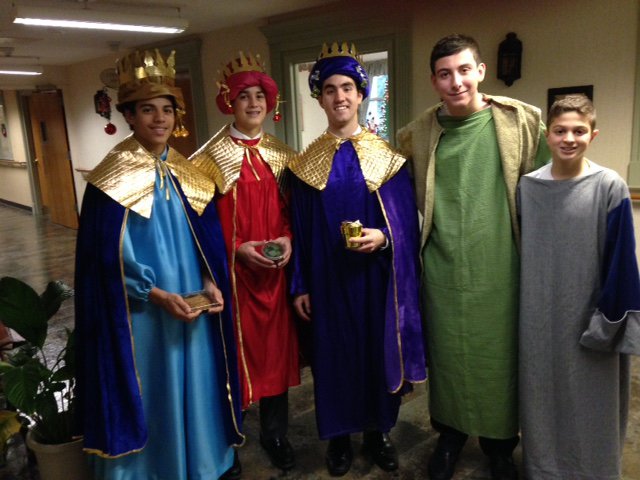
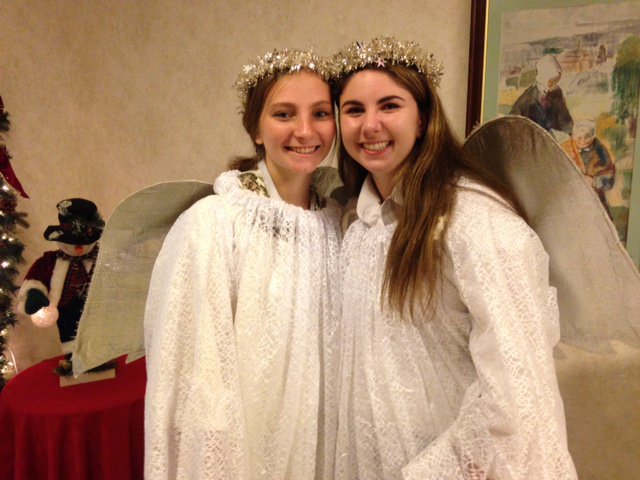
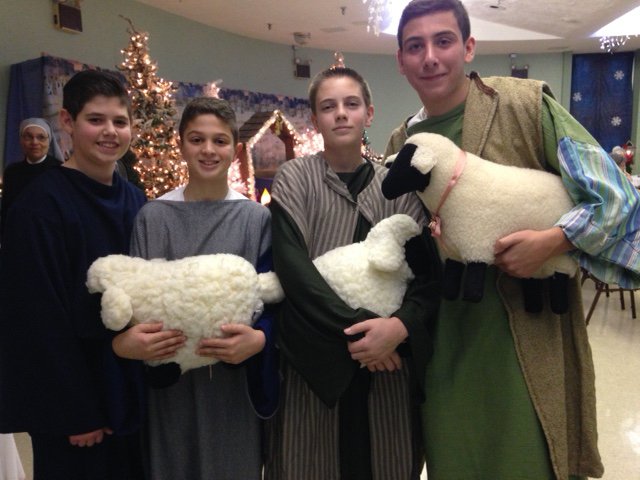





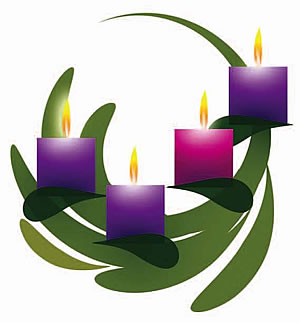

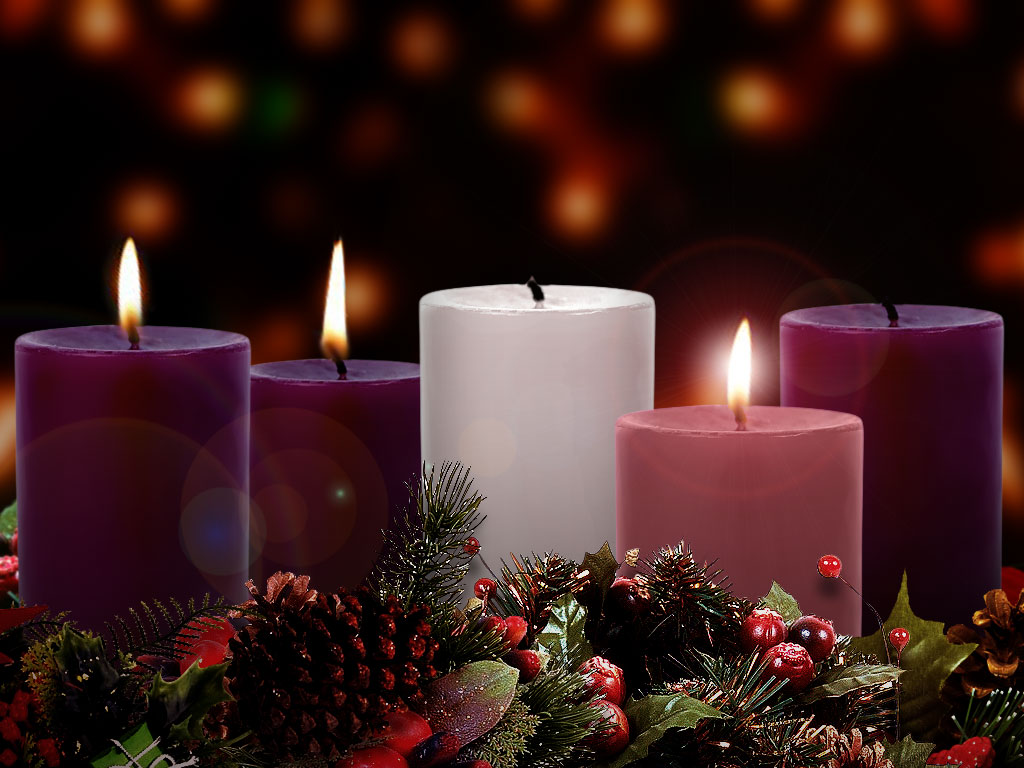





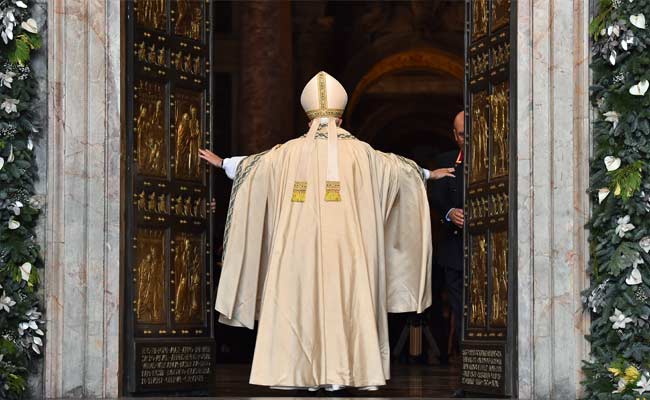
 Today we celebrate the patronal feast of the United States, The Immaculate Conception.
Today we celebrate the patronal feast of the United States, The Immaculate Conception.